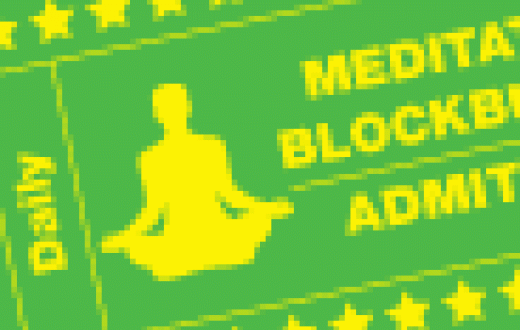8 Quotes from Shiva Sutras
Millennials want more out of life. Many times experiences teach them how to go about life. Many times, the elders and peer group help them find out about life. Whatever be the means, the beauty of youth is that they believe they can get more out of life. We agree too!
Do you think you can benefit from ancient scripture too? Do you think you can live fully, an enriched life with some valuable insights provided by the seers of the past? If yes, then here are 8 best quotes with the explanation from the ancient scripture of Shiva Sutras for today’s youth to lead a more fulfilled and meaningful life!
Quote 1: “When we invest 100 percent of our energy in any action, there will be no regrets, and when there are no regrets there is no fear or anxiety.”
When we put in our best efforts, we do not worry whether or not our work will be successful. What does worry mean? It means that we have not worked to the best of our ability. Imagine that you are playing football or running a race. If you put in your full energy, you will have no regrets. If you do not put in your 100 percent, then you may think, “Oh! I could have done better.” A person who puts his absolute effort knows, “How could I have done better? I did my best and am prepared to accept the results. If I get the fruits I will be fine, and if not, then too I will be happy.”
When you completely apply your energy, use all the possible actions , speech, and mind, you experience fulfillment. Thus there is no regret.
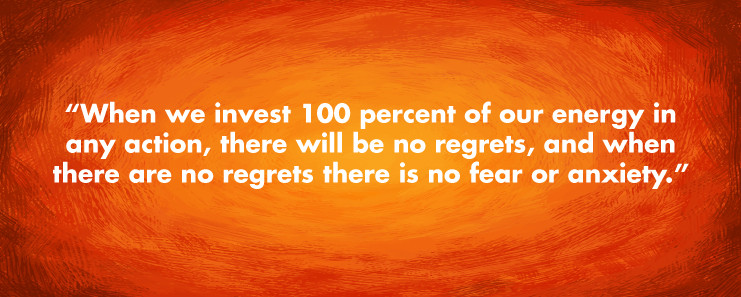
Quote 2: “The goal of life is to radiate happiness from each and every cell of your being.”
A child’s mind is innocent and calm, with high awareness. But as we grow this is lost. Thanks to stress, pressure, we easily lose the sense of a bigger picture. In fact, this is life’s goal: it should end where it began, and life is a cycle that starts with happiness. That happiness is not limited to us but spreads to all who come near us. Such happiness is a sign of true success.
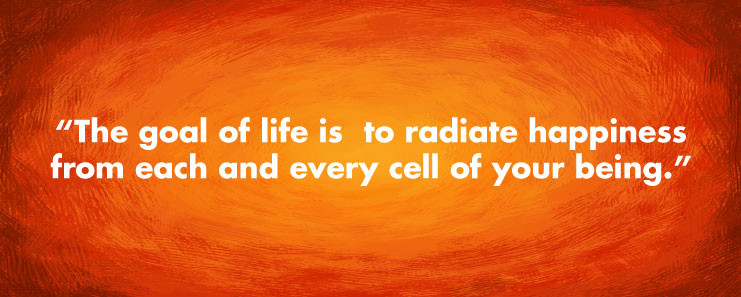
Quote 3: “Words are the root cause of worry.”
If you are someone who likes details or are curious by nature, then you will enjoy doing this next activity: Carefully observe and distinguish the different ideas, thoughts or worries that arise in your mind. Then observe one thought, then one sentence and then one word. Then separate that one word into letters and look at each letter carefully. When you do this, you realize that words often lead to resentments, misunderstanding and are a cause to subsequent emotion after they are spoken. So, when you consciously develop the habit of breaking down words, you will come to realize that worry can be tackled. Practice and some meditation will make your worries disappear.

With practice, you will understand that when we hold onto the silence that is in between words, worries vanish. Where there is no sound or words, there are no worries because words are the root cause of worry.
Quote 4 “Only with courage, can you move forward.”
Have courage, patience, and forbearance. It is not possible to become fit after only one day of doing exercise, pranayama and yoga asanas. Similarly, your mind will also not change in one day. It takes time and patience. Your mind has come into its present form over so many years. Now give it some time to change. Do not blame yourself if you fail.
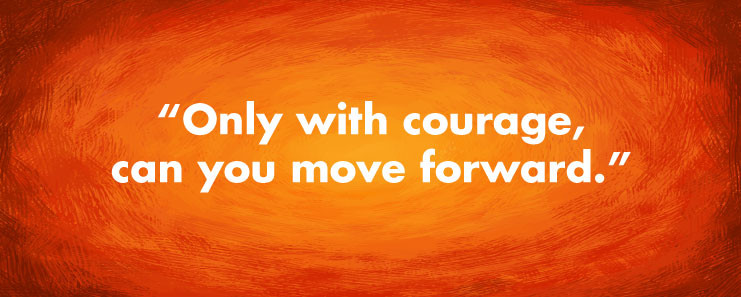
Quote 5 “Live your life with wonder.”
Have you observed a curious child, around six-months-old? A baby examines its hands and fingers with amazement as though it were seeing something amazing. The baby is just looking at its hand! When a child sees a leaf it asks, “why is it green?”. No sooner than you reply, he asks, “why is the sky blue?”, “why does an elephant have a trunk?”. Often even parents do not have answers to their questions. A deeper secret to an enriched life is the virtue of wonderment. Wonderment in joyous as well as challenging times.
Wonder is a sign of life! Look at yourself with wonder. Observe your mind and see how mischievous it is! Is it not enough just to have a mind for you to wonder about? It is not steady, even for a second – the thought that is present one moment is gone the next moment. A consciousness in wonder is the foundation for yoga. Out of this consciousness, innocence is born.
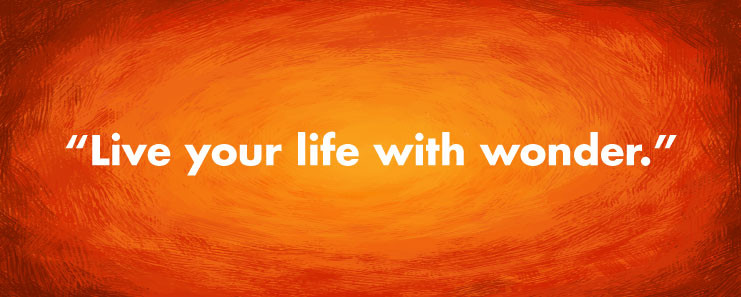
Quote 6 “You will find strength when you rest in your Self.”
Whether others pay attention to you or ignore you, pay attention to yourself. You are paying attention to others; you would be better off if you turned your attention to yourself. You worry about what others think of you. Drop this attitude. If you turn your attention inwards, it will become a source of strength. Everywhere we struggle to find happiness, which is nothing but your own nature. You yourself are the strength you search for; you are a power-house of energy.
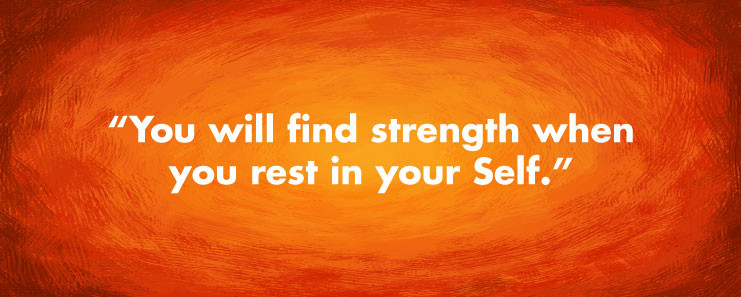
Quote 7 “In the state of purity, a sense of belongingness arises in you.”
When you mix water and oil, they do not blend – the water never feels that the oil is of its own nature, and the oil does not accept the water. This is impurity; such a mixture is called impure water or impure oil. Water and milk mix well and become one. Sugar and water blend well; they have a good relationship. Sugar dissolves and becomes one with water. If we have that principle of purity, we feel a sense of belongingness with everyone. The feeling of separation disappears.
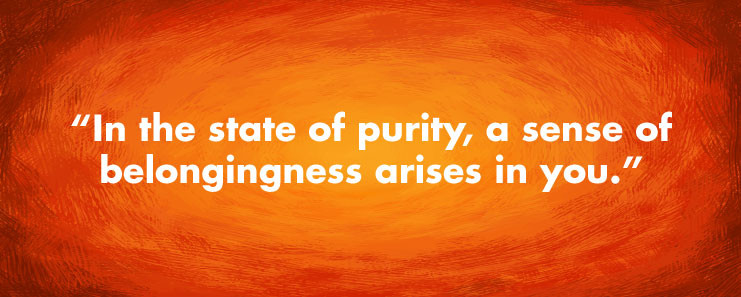
Quote 8 “You can find peace only when you enter into your own mind.”
You keep entering the minds of other people, wondering what they are thinking about you or what they are saying about you. As soon as you wake up, you start wondering about what you should say to someone: “What will they think about me? What reply should I give him?” 75 percent of the thoughts that appear in your mind are about others.
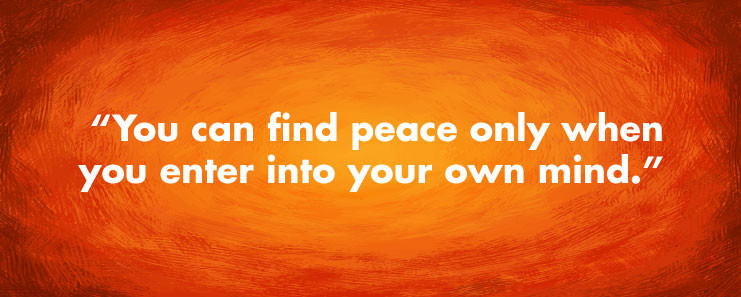
A person who is absorbed in one’s own self does not worry or think too much. You may have observed that the face of a peaceful person is full of consciousness and enthusiasm. If the same person starts worrying, the worry will show. On his face, wrinkles will appear and he will grow pale. Although work might make you tired, a person withers because of worry, not because of work, is it not? So learn to be absorbed. How? Through meditation, by consciously doing nothing.
Other Powerful Chants
Based on knowledge talks by Gurudev Sri Sri Ravi Shankar.
FAQ on Shiva Sutras
*Chaitanyam atma - The mind is part of the Divine. The mind imagines many things, which disappear just as they came.
*Jnanam bandhah - Knowledge is bondage.
*Yonivargah kalaśarıram - The multitude of similar origins is the body of parts of the whole.
*Jnandahisthanam matrka - Go to the root of knowledge, silence.
*Udyamo Bhairava - Whatever you do, do it with 100% effort.
*Shakti chakra sandhane vishvasamharah - When you direct your attention to the energy centers of the body, the world of worries and thoughts that trouble your mind will disappear.
*Jagratsvapnasusuptabhede turyabhogasambhavah - In the distinction of deep sleep, dreaming and waking are the source of fullness of the Fourth.
*Mohajayadanantabhogat sahajavidya jayah - With a victory over attachment, you find unlimited enjoyment
*Bijavadhanam - Nurture a seed.
*Asanasthah sukham hride nimajjati - Sit and be absorbed in the happiness in your heart.
*If you are unhappy or have had an unpleasant life, it is due to the world in your mind.
*Svamatra nirmananapadayati - Everyone is responsible for raising their level of consciousness.
*Vismayo yoga bhumikah - Wonder is the basis of union. (Union refers to the union of the mind and Self.)
*Nartaka atma - The Self is a dancer.
In the 9th century in Kashmir, sage Vasugupta received the Shiv sutras or aphorisms from Lord Shiva in a dream. Vasugupta compiled these inscriptions that the world today knows as the Shiva Sutras.
Lord Śhiva sounded his drum fourteen times to reveal these sounds to Pāṇini. Panini is an Indian grammarian who wrote a treatise on the grammar of the Sanskrit language, using a system of notation called Pratyaharas based on the arrangement of Sanskrit speech sounds in the form of 14 verses called the Maheshwara sutras. This arrangement is mathematically optimal.
Shiva - Sanskrit: शिव
There are 77 Shiva Sutras.
There are 25 mudras in Shiva samhita.
The ancient text, Hatha yogic texts, mentions the Goraksha Sataka or Goraksha Paddhathi in the 10-11th century. In these texts, the origin of eighty-four classic asanas shows an association with the Hindu deity Lord Shiva.
There are seventy-seven Shiva Sutras. In the 9th century, a sage in Kashmir, Vasugupta compiled these sutras.
There are 14 Maheshwara sutras. These sutras are arranged in a definite pattern based on their sounds. Lord Śhiva sounded his drum fourteen times to reveal these sounds to Pāṇini. Panini is an Indian grammarian who wrote a treatise on the grammar of the Sanskrit language, using a system of notation called Pratyaharas based on the arrangement of Sanskrit speech sounds in the form of 14 verses called the Maheshwara sutras. This arrangement is mathematically optimal.
Vigyan Bhairav is a remarkable ancient scripture that, with the guidance of a Master, can open doors to deep meditative experiences. The text unveils secret ways of living in a higher state of being, offering avenues to inner awakening and awareness.
The Shiva Purana consists of stories revolving around Shiva-centered cosmology, mythology, the connection between Gods, morales, yoga, tirtha (pilgrimage) sites, bhakti, rivers and geography, and other topics. It revolves around the Hindu God Shiva and Goddess Parvati. It has references and reveres all gods and goddesses.
Shiva is the entire universe. He is in every atom of the universe. So but natural Lord Shiva is with each one of us.
It is believed that all sincere desires are fulfilled by reading Shiva Purana with devotion. It has social, professional, financial, personal, etc. benefits. It facilitates the attainment of salvation.
Join us for Mahashivratri 2021 at the Art of Living International Center. Listen to the magnificent Rudram, chant Om Namah Shivaya and meditate at midnight with millions of people.



































